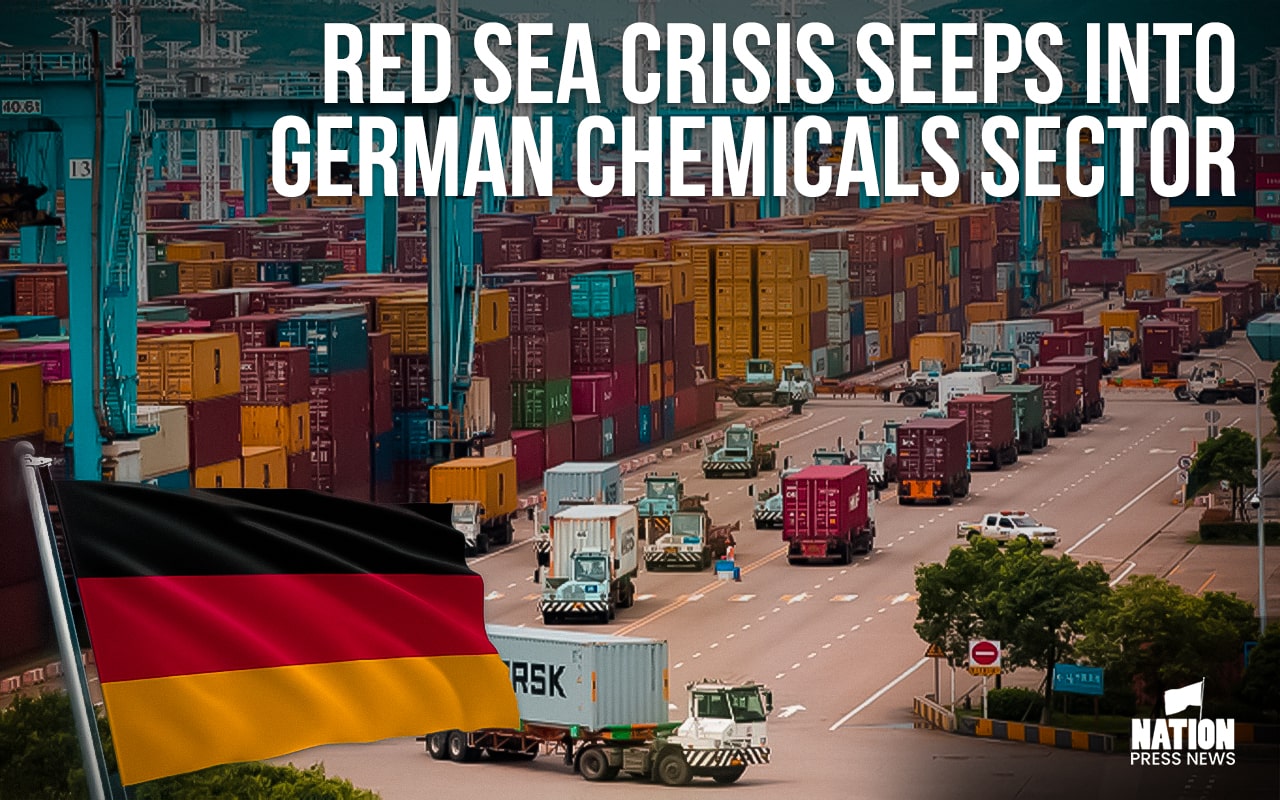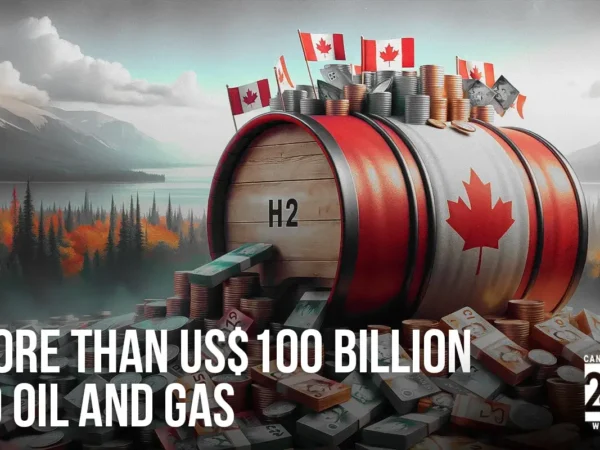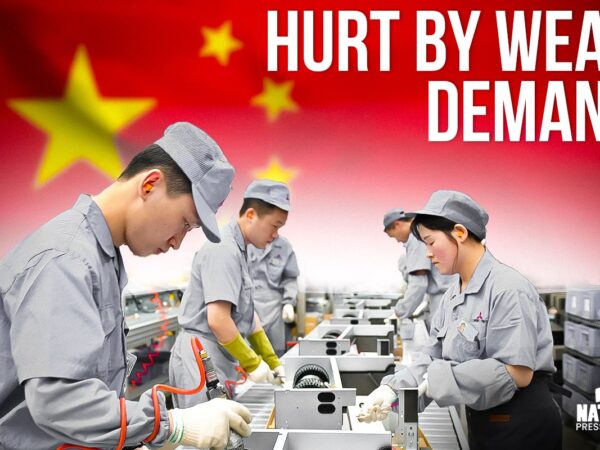Red Sea crisis seeps into German chemicals sector
The largest industry in Europe, chemicals, is beginning to feel the effects of delayed shipments through the Red Sea. It is the latest sector to alert about supply bottlenecks that have caused some companies to reduce production.
Container shippers have redirected vessels across Africa and away from the Red Sea and Suez Canal in response to attacks by Yemen’s Houthis, which is causing a delay in the arrival of vital Asian imports to Europe, including anything from car components and engineering equipment to chemicals and toys.
Although the German industry has been accustomed to supply disruptions during the epidemic and the war in Ukraine, the effects of decreased traffic via the trade artery are beginning to manifest, with Tesla’s Berlin factory being the most notable casualty thus far.
With yearly sales of about 260 billion euros ($282 billion), the chemicals industry in Germany is the third-biggest business in the nation after automotive and engineering. Approximately one-third of the country’s imports from outside Europe come from Asia.
The CEO and owner of Gechem GmbH & Co KG, which mixes and bottles chemicals for large industrial clients, Martina Nighswonger, stated, “My procurement department is currently working three times as hard to get something.”
Gechem, whose yearly sales are in the double-digit millions of euros, has reduced the amount of dishwashing and toilet tablets it produces as a result of the delays since it cannot obtain enough trisodium citrate, sulfamic acid, and citric acid.
As a result, the company is reevaluating its three-shift structure, Nighswonger added, noting that the effects of the transportation crunch would cause issues for at least the first half of 2024.
Nighswonger continued, “This is causing candid discussions with customers.”
“If we get three truckloads instead of six, each customer only gets part of their order quantity, but at least everybody gets something,” she stated.
Larger specialty chemical manufacturer Evonik noted that “short notice routing changes and delays” were also affecting it, noting that some ships had altered their course up to three times in a matter of days.
The company stated that it was attempting to lessen the effects by placing orders earlier and using air freight, which is regarded as a temporary solution because certain chemicals cannot be flown by plane.
Asian Dependency
The reliance on Asian imports has long been highlighted by the German trade association VCI, which claimed that while production disruptions should only be considered exceptional circumstances, delays in imports via the Red Sea added to the already burdened state of the business.
Henrik Meincke, chief economist at VCI, stated that “the effects are particularly noticeable in medium-sized fine and specialty chemicals companies,” noting that these businesses frequently purchase a sizable share of their raw materials from Asia.
The recession, rising labor and energy costs, and the Red Sea transport problem are already putting strain on Germany’s economy. S&P Global reports that Europe’s most susceptible industries include the chemicals sector, automobiles, and retail.
Chemical companies also object to increased fuel costs as a result of delayed imports. They say that because tankers carrying essential raw materials take up to 14 days longer to arrive, these costs can only be partially passed on to customers.
- Published By Team Nation Press News







